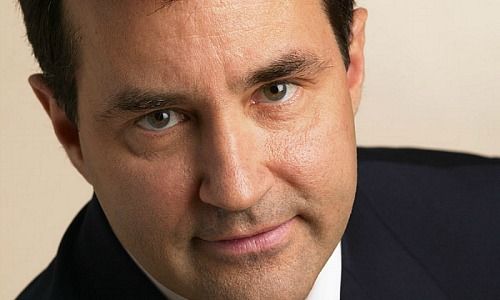Jérôme Pfund: «Hong Kong Is the Better Place to Conduct Research»
«For the time being we have decided not to attack the Chinese market, with one exception,» Jérôme Pfund, Co-Founder, Chairman and CEO of Sectoral Asset Management, says in an exclusive interview.
Mr. Pfund, it’s now three years since Sectoral Asset Management opened the Hong Kong office. How has this decision changed your position in the region meanwhile?
We have been in a better position to conduct research for healthcare companies in the region. And we have increased the number of company visits as well as the number of recommendations. On the investor side, we have developed new clients in Hong Kong and Singapore since we are physically present in the region.
How often are you working in Hong Kong?
I spend around 60 percent of my time in Asia. My main activity is to develop our investors’ base.
Why did Sectoral Asset Management decide to open an office in Hong Kong, and not in Singapore? Are there any plans to open an office in Singapore?
We have no plans to open an office in Singapore. Hong Kong is our hub for Asia. Sectoral Asset Management has had investors in Japan, Taiwan and Korea for over 10 years. Hong Kong is better located to serve them.
«We have decided to focus on Japan, Taiwan, Korea, Hong Kong and Singapore»
On top of that we have a team of financial analysts supporting our Emerging Markets Strategy and for them Hong Kong is the better place to conduct equity research.
The Asian market is fragmented. How do you handle this challenge?
We have decided to focus on Japan, Taiwan, Korea, Hong Kong and Singapore. In those five markets, we concentrate on mutual funds (sub-advisory relationships), segregated mandates for large institutions and private equity funds for Family offices.
What does your investment strategy in Asia look like?
We are distributing our four main strategies in Asia: Biotech, Global Healthcare, Private Equity and Emerging Markets Healthcare. Because of the structure of the healthcare sector in Emerging Markets this strategy invests around 60 percent in Asian markets.
«Our Emerging Markets Healthcare strategy is unique and is generating more and more curiosity»
In Emerging Markets we invest mostly in Generics, Medtech, Clinics and Traditional Chinese Medicine TCM companies. In those markets we do not find Global Pharmaceuticals companies like Roche or Pfizer and neither do we find pure Biotech.
What are your business plans in Asia?
Asia has been good with us for a long time. We had our first investor more than 10 years ago in the region. We now have clients in Japan, Korea, Taiwan, Singapore and Hong Kong. Sectoral Asset Management is focusing on those 5 countries from a commercial point of view.
On the investment side, our Emerging Markets Healthcare strategy is unique and is generating more and more curiosity. We want to continue to depend on our asset management capability from Hong Kong as well as increase our investors’ base.
The two biggest markets in Asia are Japan and China. How do they differ from each other?
For the time being we have decided not to attack the Chinese market with the exception of the Sovereign Wealth Funds (SWF). The main reason for us not to be more active in China is a question of resources.
«Right now, we are at an attractive moment in terms of valuation»
In Japan, we are dealing with large institutions like Life insurers and Pension funds. But we are not active in the retail markets.
From the investor’s point of view, on which point of the cycle is the biotech market situated at the moment?
We are at an attractive moment in terms of valuation. Price/Earnings (PE) of Biotech stocks are below the one of Pharma, which has been very rarely the case in the past. Last year was a record year in terms of new product launch. 45 new drugs, most of them coming from the biotech industry, were approved by the FDA. The regulator is conducive to the industry.
«This year it is the Medtech which had so far had the best performance in the Healthcare sector»
We are witnessing major innovation in the area of cancer, Gene therapy etc. The fundamentals are sound and since last summer the valuation has come back to attractive levels.
Are the generics the largest contributors to performance regarding capital gains?
It is difficult to answer this question. It all depends of which period you are talking about. Since last summer comments of Hillary Clinton about drug pricing, the Generics and Specialty Pharma companies have suffered the most. The Generics makers are down on average over 20 percent year to date. This year it is the Medtech which had so far had the best performance in the Healthcare sector.
How is the biotech sector rated at the moment?
We are at a very interesting moment from a valuation point of view. The biotech industry, at 13x PE, is trading at a lower PE than the large Pharma, at 16x PE. Nevertheless the biotech industry earnings are growing at 16 percent versus only 10 percent for the Pharma. You are able to buy an industry, which is growing faster but at a lower PE.
To what extent are mergers & acquisitions activities contributing to performance? And how do you handle it?
In the Healthcare sector M&A is always present. Big, cash rich pharma companies are always looking for innovative smaller biotech and Medtech partners. Those smaller companies lack the distribution capabilities of the large Pharma companies.
«The healthcare sector does not depend too much from the monetary policy»
At Sectoral Asset Management we do not invest in a company because we think it may be the target of an acquisition. But if we do our fundamental research work well we may come to the same conclusion as the business development team of a large healthcare company.
Is there a correlation between the health care sector and other stock market trends noticeable?
The healthcare sector does not depend too much from the monetary policy. Only a small fraction of the drug payment is out of pocket in developed markets. Therefore the sector is less dependent to the economic cycles. But as we are dealing with stocks which are part of the market, there is some correlation. But it is probably one of the less correlated sectors of the market.
What influence has the coming election in the US on the health care sector respective-ly on the stock market in general and on the health care funds particularly?
Given the fact that the healthcare sector represents 17 percent to 19 percent of the U.S. GDP it is normal that it is a topic of much debate during an election year. The demand for healthcare services and products is growing faster than the GDP and a great percentage of its financing is coming from the insurers and government. Therefore we have a situation where there is no lack of demand and pressure on the financing for this demand.
«The risks are more headline risks than a fundamental change»
This situation puts pressure on drug prices, independently of the party winning the election. The risks are more headline risks than a fundamental change of the U.S. healthcare system, which has already been through an extensive reform with Obamacare. The companies the most exposed to the political environment are the oned with undifferentiated and older drugs.
Jérôme Pfund founded Sectoral Asset Management in Montreal with Michael Sjöström in 2000. The company is exclusively focused on managing global healthcare portfolios. The objective is to achieve superior returns for investors by concentrating on primary research. In June 2013, Sectoral opened the Hong Kong office to strengthen the development and research in the region.
Prior to establishing Sectoral, Pfund worked at Pictet in Geneva from 1989 until 1997, initially as a Portfolio Manager in the bank's institutional asset management business, and then as the unit's Chief Investment Officer. In 1997 he moved to Montreal to assume the role of CEO of Pictet's North American operations.
Jérôme Pfund graduated in 1987 from the University of St. Gallen in Switzerland with an MBA in Banking. He obtained his CFA charter in 1993. He was also a Captain of a Special Forces unit of the Swiss Army.

















